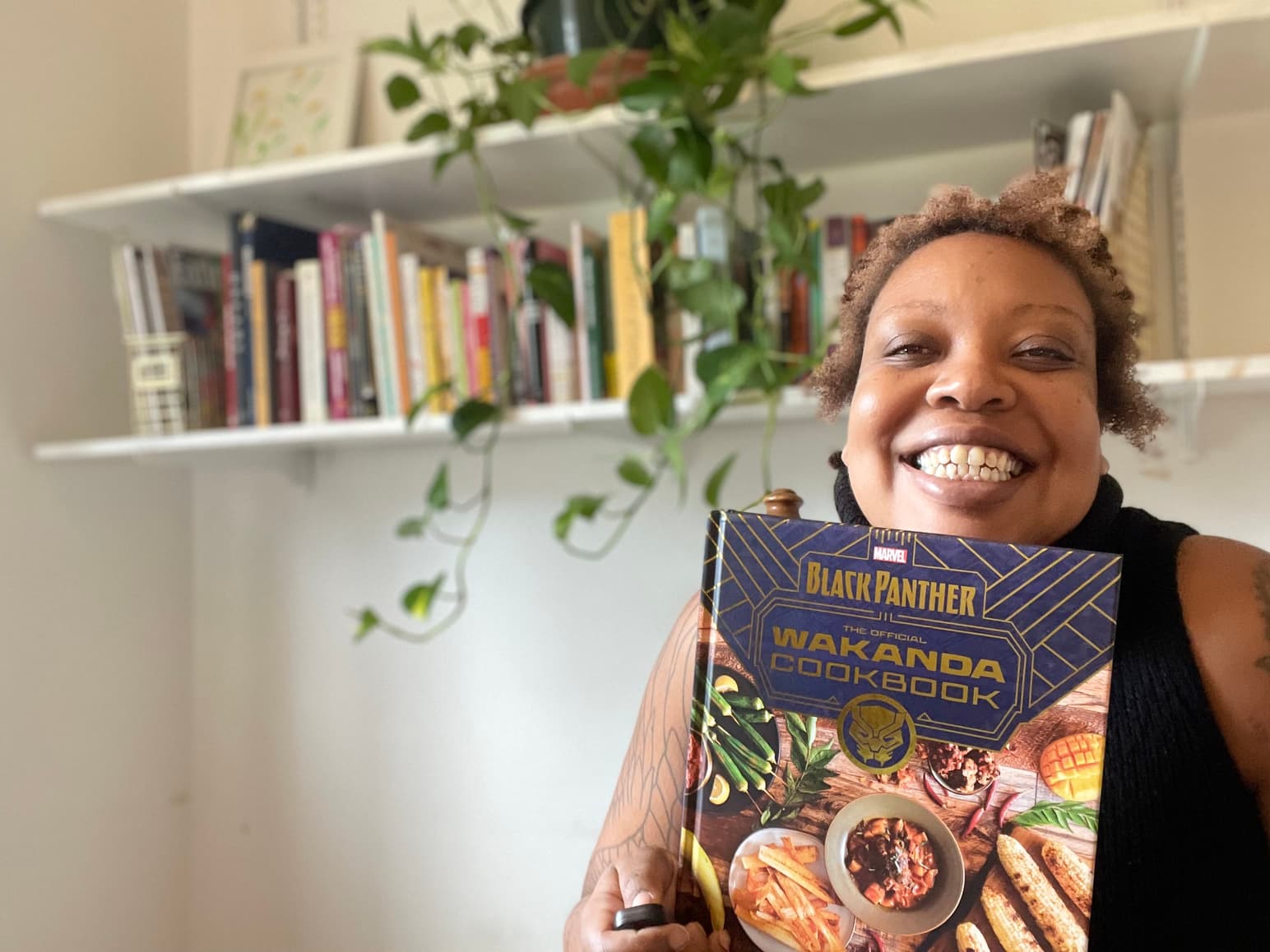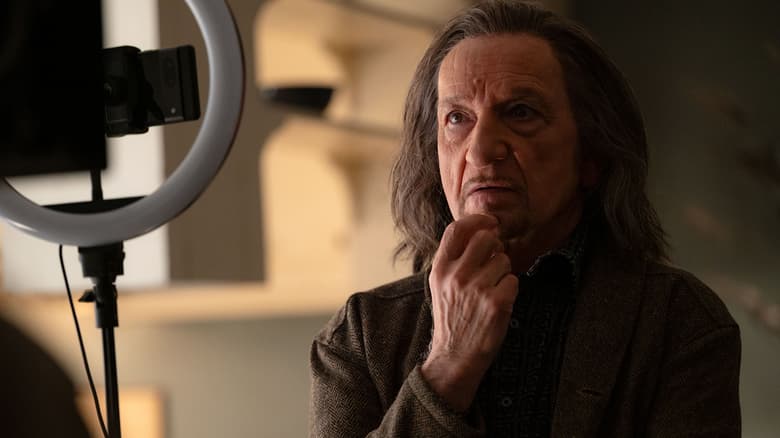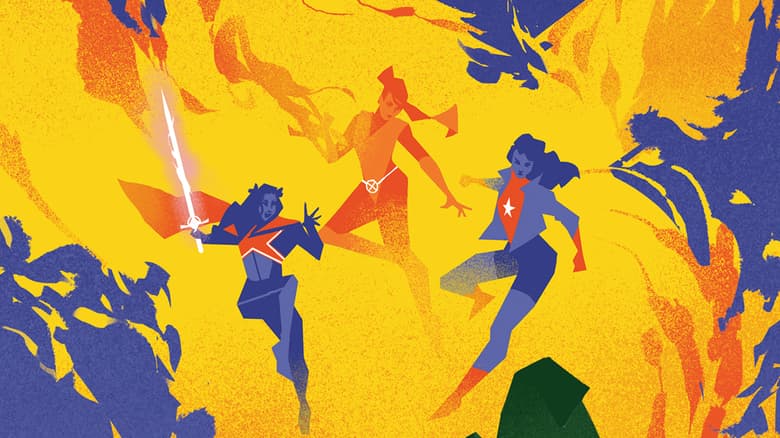Every Black Panther Fan Will Love The Official Wakanda Cookbook, And Here's Why
Chef Nyanyika Banda answers an exclusive Q&A and shares some recipes to bring the heart of Wakanda to your kitchen! Order your book today!
What could be more festive for the holidays than sitting down to an array of Wakandan cuisine? Get ready to impress your guests, because Marvel's Black Panther: The Official Wakanda Cookbook serves up food fit for royalty! But don't be intimidated—these are some wonderfully flavorful dishes that can be cooked in any kitchen.
Featuring more than 70 extraordinary African-themed recipes, created by award-winning Malawian-American chef Nyanyika Banda and inspired by 50 years of Black Panther comics, Marvel's Black Panther: The Official Wakanda Cookbook is a tribute to culinary traditions from all over the African continent. Including recipes from street food to entrees, spice blends to sauces, side dishes to snacks, and desserts to cold drinks, there's something amazing to appeal to every palate and kitchen skill set.
With classic cuisine such as Roasted Chambo, Braised Oxtail and Dumplings, and Glazed Road Runner Wings, and filled with gorgeous full-color food photography, this is one unique way to bring the world of Marvel Studios' Black Panther to life! This cookbook was even recently used as a resource by Walt Disney Imagineering's Food & Beverage team to develop new foods for the Avengers Campus' Black Panther celebration.
Gather your friends and add a touch of royalty to your Black Panther: Wakanda Forever after-party with Marvel's Black Panther: The Official Wakanda Cookbook!
Chef Nyanyika Banda is a Malawian-American chef, writer, and entrepreneur. She earned a Culinary Degree from Madison College in 2012. While attending Madison College she competed and placed in multiple American Culinary Federation competitions. She has worked in several acclaimed kitchens across the country including WD-50 and the Saveur Magazine test kitchen. After her experiences in New York City, Banda moved back to the Midwest to attend the University of Wisconsin-Superior. She designed her history and writing majors around African Foodways and has been a scholar of the topic ever since.
We sat down with Chef Nyanyika Banda for an introduction to Wakandan cuisine and a discovery of the African Diaspora through Wakanda:
Which dishes would you say are the ultimate Wakandan comfort foods?
The village-style curried chicken is a representation of Wakandan ethos in a pot of stew. The dish is commonly made during the tribal council meetings. The stew takes many hours—almost half a day—to braise, and so the tradition is for the chefs to start it a day before the tribal meetings are set to begin. Traditionally, in the outdoor kitchens a large cauldron is set over a large fire pit and the stew braises for as long as the meeting takes place. This is why the stew is started far in advance. So that no matter when the consultation ends, there will be a filling bowl of curried meat and sauce over nsima.
What spices or condiments will you find in any kitchen in Wakanda? Tell us what to stock up on!
- Harissa Spice Mix
Many recipes for harissa around the world are in the form of a paste. In Wakanda, hi-tech dehydrators are used to quickly and easily dehydrate condiments for easy storage and transportation. This spice mix is great to have in the cupboard to add to vegetables, like grilled corn, and snacks, like lamb kabobs. - Carrot Ginger Dressing
This is the “house” dressing for the Royal Palace and is always kept on hand. It can be used on salads or as a marinade for meats or fish. - Msuzi Matimati
The most common way that meats are served in a Wakandan home is accompanied by this sauce. It is a sauce of slow cooked tomatoes and spices like cardamom, corriander and cumin. A perfect bite would be roasted lake fish, nsima and some msuzi matimati.
What does the phrase “Wakanda is everywhere!” mean to you?
I was most recently in Malawi, Africa during the winter of 2020-2021. My cousin Manyanda had been up late talking. It was our first time meeting each other, both of us middle-aged. The topic of Wakanda came up. This was months before the cookbook would even come on my radar. We were discussing all of the ways that those of us from the African Diaspora felt a kin to the story of Black Panther. He said to me, “Wakanda lives in the hearts of all of us”. As an African-American, and he an African, it was another example to me of how we are all connected. When I started working on the cookbook, this phrase, “Wakanda lives in the heart of everyone” was what I used as my thesis. This cookbook, and its recipes, are a celebration of the African Diaspora.
Read an excerpt from Marvel's Black Panther: The Official Wakanda Cookbook featuring an introduction by Ndi Chikondi, Executive Chef of the Royal Palace of Wakanda!
The food of Wakanda is like nowhere else and simultaneously everywhere one could travel in the universe, because Wakanda lives in the heart of everyone. I was destined to be a culinarian out of the womb. My iya agba (grandmother), iya (mother), and Anti (Aunt) Bahiya created a legacy through growing and making food, and I dedicate this first Wakanda Cookbook to these powerful women.
We are raised as Wakandans to practice a healthy lifestyle, eating lots of fresh fruits like mangoes and bananas, fish from the Nyanza (Lake Victoria), and groundnuts that can be farmed. Growing our own vegetables is a part of customary life here. If you have land, you farm it. Most of us have chimanga (corn) in our yards that we use for drying and turning into cornmeal. We also love eating it fresh, and giving ears out as gifts.
My grandmother was a farmer along with my grandfather. During World War II, when King Azzuri was fighting the Nazi invasion, my grandparents supplied the Royal Palace with goods from their farm. They grew lemon and lime trees, farmed groundnuts such as peanuts, and grew maize and hearty greens like kale and collards. They also raised goats, ox, and chickens. It was on this farm that my mother and Anti Bahiya grew up and where I was born.
Both my mother and anti attended school in their village and would work on the farm before and after. It was when they were young that my grandfather was killed during a tribal conflict, leaving my grandmother to farm on her own. This was when my mother and Anti Bahiya decided to start a business together. Anti Bahiya was seventeen and my mother fifteen. They were going to open a food stand at the Birnin Zana Market in the Golden City. They began with one dish, making a chicken curry stew and selling meals of chicken, nsima, and kabichi, a curried cabbage salad. My mother was not an inventive cook, but my anti thought like a chef. The more often they visited the market, the more elaborate her ideas for meals became. Their tiny street food business gained notoriety near and far.
Word spread of the young girls with the delicious food and soon they were serving not only daytime workers but also staff of the Royal Palace. Their food was making it into the mouths of King T’Chaka and his wife N’Yami. On their days off, members of the Dora Milaje would stop by for their newest creations. My Anti Bahiya was creating recipes like zoumba moa, a dehydrated mushroom snack, and sweet potato baked with oats and pecans found at the market that the Dora Milaje could take with them during training.
After months of selling meals at the market, my mother fell in love with one of their regulars. My father was an engineer who worked for the Wakandan Army and lived in the Golden City. She continued attending school and working with her sister. She dreamed of getting married and having a daughter that she could pass on the family business to. Anti Bahiya’s future would become very different.
The Dora Milaje fell in love with my anti’s snacks. They could see she was a very hard worker and her intelligence shone through her creative recipes, as did her quick thinking while working the food stand, all qualities the Dora Milaje look for in a new recruit. One day, they came to her with an offer. They said they had spoken with the elders of her tribe and that she had been chosen to join them and train at Upanga. At seventeen, my anti was initiated as a Dora Milaje. My mother later got married and my father moved to the family land to help her farm.
My mother continued to make and sell food at the Birnin Zana Market and when I was born, she would bring me as a baby along with her. As soon as I could hold a knife, I was slicing cabbage for slaw. At home, I would sit with her as she would prepare the meals for the next day. Once I was old enough to go to school, in the mornings I would go with my father to feed the chickens. And in the afternoons, I would meet my mother at the market.
I would receive letters from Anti Bahiya often. She would tell me about her adventures, traveling the world defending Wakanda and protecting King T’Chaka and young T’Challa. She always included the new foods she was discovering and explaining to me, “Wakanda is everywhere!” She promised that someday I would see the world outside of Wakanda, too.
One day, her promise came true. I was eighteen and had been working the farm and the market with my mother. That day we had lamb kebabs and samosas and were running out fast. A woman came up and ordered one of each. She came back shortly after, exclaiming how it was the best samosa she had ever had. I blushed and thanked her. She then revealed that she worked for the N’Charu Silema and that she knew my Anti Bahiya. My heart began to race, I had never encountered anyone from King T’Challa’s inner circle. She explained that the king and his sister were in need of a new private chef to join the palace staff and that I was being offered the job. I was told to go home and pack my things, and that I would be starting the next day.
This was the best day of my life, and that night we celebrated with a feast of braised oxtail, smoked fish, nsima, and kale. The next morning, I said goodbye to my mother and father and headed to the Wakandan School for Alternative Studies. It was there that I was taught how to incorporate technology into my cooking. Wakandans don’t use fossil fuels to cook traditionally. We try to use eco-friendly culinary techniques. At the Wakandan School for Alternative Studies we used dehydration and temperature-controlled machines to cook rather than wood or coal. It was all new to me and I loved it! Once I graduated I took up residency at the Royal Palace. King T’Challa began to request me for special diplomatic trips. I have catered many dinners at the Wakanda Embassy in New York City.
It was through my travels that I saw what Anti Bahiya was saying in all her letters. There were signs of Wakanda everywhere. I had always thought that mangoes and pineapples were a Wakandan secret, but I saw them at markets on the streets of New York. Sometimes, I could find goat at the Carribean markets, but there was also lamb, which I found to be a good substitute. I also saw the spices of my homeland in African grocery stores that carried dried crayfish. Sweet potatoes, kale, and tomatoes were abundant. I began to create dishes that incorporated all that I was seeing and all that I had learned from the braised chicken at the market to the sous vide yams I saw at restaurants in the city.
This cookbook is a tribute to the warm heart that lives deep within the continent of Africa and how, through its food, that love has spread across the world.
Marvel's Black Panther: The Official Wakanda Cookbook is now on shelves, everywhere books are sold!
Want to stay on top of everything in the Marvel Universe? Follow Marvel on social media—Twitter, Facebook, and Instagram—and keep watching Marvel.com for more news!
The Daily Bugle
Can’t-miss news and updates from across the Marvel Universe!










